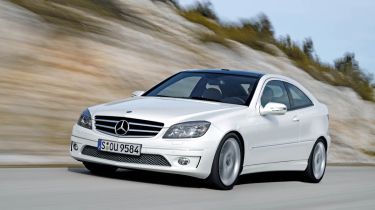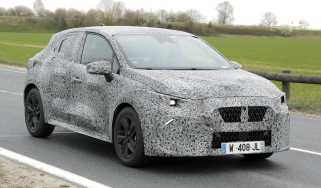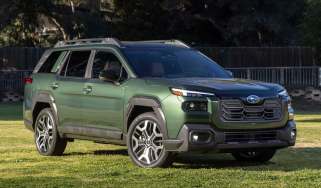Mercedes CLC
Can a facelift and mechanical revisions refresh seven-year old hatchback?

The C-Class Sports Coupé always struggled against the best coupés in the class – and despite the updates, it’s a similar story for the CLC. It certainly looks more stylish, comes with slightly more equipment and is better to drive, but it still feels behind the times. It’s a shame Mercedes hasn’t tried harder with a totally fresh design that uses the excellent chassis from the new C-Class. Maybe then the CLC would have been a winner.
When is a new car not a new car? When it’s the Mercedes CLC. While this sporty machine wears a fresh badge indicating it’s an all-new model, it’s actually a heavily facelifted version of the C-Class Sports Coupé, which was originally launched in 2001.
However, as well as updating the looks, Mercedes has revised the CLC’s suspension set-up, brought in more economical engines and added a raft of extra equipment. But is that enough to keep what is essentially a seven-year-old design competitive against BMW’s recently launched 1-Series Coupé and a fresh version of the Audi A3, due later this year?
Mercedes engineers have added 1,100 new parts to the CLC, and the most obvious are the fresh body panels and revised lights front and rear. Bringing the CLC into line with the family look of the all-new C-Class, the result is a car that’s certainly more distinctive than its predecessor.
That’s especially true around the tail, where a row of neat LEDs makes up the third brake light, ditching the previous model’s ugly spoiler in the process. However, with its short rear and nose-heavy stance, there’s still something not quite right about the car’s proportions.
Heave open the long doors, and you’ll see that the cabin has received a subtle makeover. Improved sports seats offer more lateral support, while a three-spoke multifunction steering wheel, automatic climate control, brushed aluminium trim and parking sensors are standard on all models.
More luxurious variants get the option of Bluetooth phone connectivity, a plug-in port for an iPod and a Europe-wide DVD satellite navigation system. What’s more, there’s also now the option of a new integrated infotainment unit as well as a voice-controlled six-CD autochanger.
Space in the rear is acceptable for two average-sized adults, although the boot is rather cramped. Under the skin, engineers have added the direct-steer system from the C-Class, which has a speed-sensitive variable-ratio rack. This makes the CLC more responsive at speed, without harming manoeuvrability when parking.
In addition, a new Sport model has joined the range. This sits above the base SE model, and gets stiffer, lower suspension and 18-inch alloy wheels as standard.
The engine line-up consists of four petrol and two diesel units, which are all carried over from the outgoing car. This supercharged 200K model gains 20bhp, rising to 184bhp, but returns 36.2mpg on the combined cycle – an improvement of 2.8mpg.
The full range is made up of two supercharged cars (the CLC 180K and 200K), two V6s of 2.5 and 3.5 litres (badged CLC 230 and 350 respectively) and a pair of 2.2-litre diesels (the CLC 200 CDI and 220 CDI).
Of these, we tried the CLC 220 CDI, which was punchy but rather coarse and noisy, and the CLC 350. This was certainly smooth and quick, but with a price tag of around £26,000, it’s far from cheap.
Perhaps the best compromise is the CLC 200K Sport. Hooked up to a five-speed automatic, it provides perky acceleration and is always refined. Thanks to the new direct-steer system, the CLC feels sharper, while the firm suspension set-up limits body roll, but still allows for a comfortable ride. However, while the CLC is nimble, it’s not as much fun as rivals.
This CLC 200K Sport costs around £200 more than the old model, which takes it to a somewhat expensive £22,420. Overall, do the updates keep the CLC competitive? Well, the new model represents a small step forward, but it’s still an old design – and that’s not going to be enough against newer rivals.







